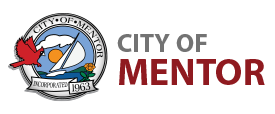As a result of the severe storm event of Saturday, July 20th, thousands of residents in Lake County have experienced structural flooding and damage. In an effort to mitigate the effects of this damage, the Lake County Emergency Management Agency has declared the county a local disaster area. An application will be made through the state of Ohio to request federal disaster assistance. In order to assist with this application, the City of Mentor requests information from residents on the nature of impacted residential or business structures. If you have experienced storm-related flooding or sewer back up, please contact the City of Mentor at 440-255-1100 to assist us in identifying your property as having suffered storm-related damage. You may also e-mail the city with your information at [email protected]. Please indicate the nature and magnitude of your damaged property. If you wish to be contacted by city personnel, please indicate so and you will be contacted as soon as resources permit.
Health and safety is the immediate concern for water damaged properties. Cleaning basements and other impacted living areas in contact with sanitary sewer water is essential. Properly drying impacted areas is essential to prevent mold growth. Information is available at the Lake County General Health District’s website on how to properly treat contaminated areas. Persons unable to disinfect living areas on their own may dial “211” LakeCounty from a land line to request assistance, or call 440-639-4420.
In addition, city crews will be removing storm damaged debris and refuse placed at the curb for disposal. The Lake County Commissioners are providing free disposal at the LakeCounty landfill for impacted property owners.
If you require other direct assistance from the city, please call 440-255-1100 and you will be directed to the appropriate department.
INFORMATION FROM THE LAKE COUNTY GENERAL HEALTH DISTRICT
CLEAN FLOOD-DAMAGED HOMES TO PREVENT MOLD
The Lake County General Health District warns that victims of flooding and water backup should clean and thoroughly dry any areas of homes that have gotten wet from floodwaters. Dehumidifiers and fans should be used to help remove excess moisture.
Mold is found indoors and outdoors everywhere. Steps should be taken quickly to prevent mold growth. Mold may cause allergic reactions, be an asthma trigger, or cause other respiratory problems in at-risk individuals. Mold may grow quickly on wet surfaces such as wood, ceiling tiles, cardboard, wallpaper, carpet, drywall, fabric, and insulation.
FEMA guidelines recommend throwing away porous materials that can support mold growth. Wet items such as paper, furniture, mattresses, rugs, insulation, ceiling tiles, and carpeting must be discarded. Wallboard should be cut one foot above the water line and thrown away. Porous paneling should be removed and discarded, while some may be able to be removed and thoroughly dried before being reinstalled. Allow areas to dry for several days before replacing damaged materials.
Bedding and clothing may be thoroughly washed with hot water and dried. Non-porous items such as, metal, glass, plastic may be washed then disinfected with a solution of 1 cup of bleach and 1 gallon of lukewarm water. Never mix an ammonia product with bleach because it releases toxic fumes.
If mold is already present, evaluate the material to determine if it needs to be removed, or if it can be cleaned and disinfected.
